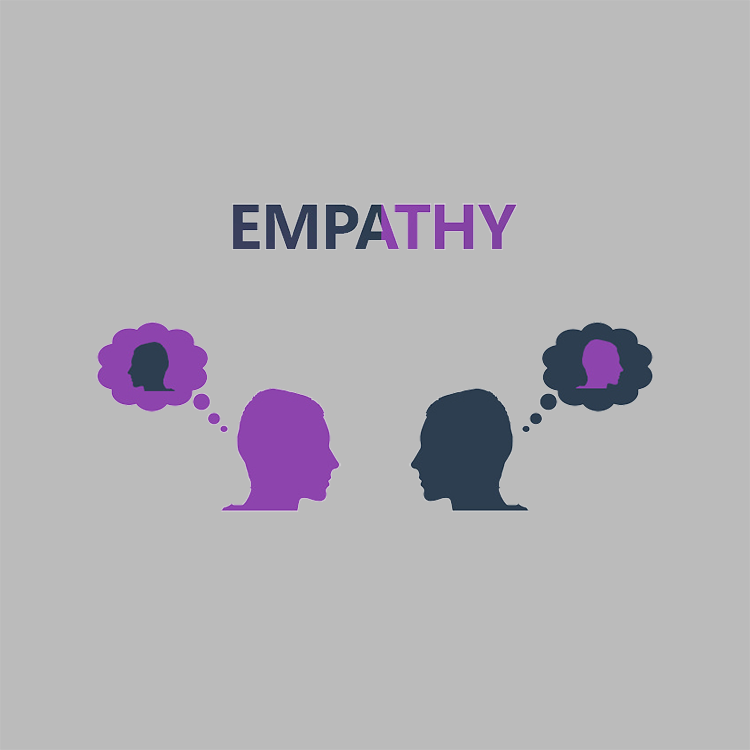Challenges are often (usually?) opportunities for growth.
Integration
Let's talk about what I call "The stages of integration." Like any practice with this level of depth, especially ones that challenge our training and biases, it can take time for us to "fully” integrate the principles of the practice. I put "fully" in quotes because we can't really know or measure and at some point declare, "Now I've fully integrated Empathy! Jesus and Buddha stand aside!" In my experience with the practice and learning of Empathy, as well as martial arts, for example, there really is no end point. I see it as a constant learning. Each new lesson or epiphany leads to new challenges!
Challenges for relationships
An issue I have noticed occur is where one half of a couple dives in, really “gets it,” for whatever reason, but their mate does not find PE interesting or useful.
The one who is into it is excited to use this new tool or “way” with their mate. They may also feel more free now to express dissatisfaction, disappointment, and other feelings that come up when needs are not met. Unfortunately, what I often saw in these situations was a “beginner level” use of PE that may come across as passive aggressive, condescending, or just plain annoying. Couple that with the frustration that can build up in a person who is trying really hard to express empathy where their mate is not.
You probably guessed that the frustration builds as needs for fairness, consideration, connection, respect, and understanding are not met.
Internal challenges
Closely related to the above challenges are the internal struggles that can occur. Here are a few I’ve seen over the years. I’ll go over each of them briefly here and you will find ways to handle these challenges in other chapters.
Now I see my unmet needs
One struggle may blossom if a person realizes how many of their needs are not met in a given relationship.
Now an “expert” with PE – someone who has significantly integrated the “way” – may have a deep understanding that they do not have to look to one person for all their needs and it is okay if their mate meets a few but not others. In that case, yay, less or no issues. But I’m talking here about the challenges beginners may face.
So, one person in a relationship realizes, “Oh wow I have all these unmet needs that I was not paying attention to! My mate is not meeting these needs. Should I break up with them?”
Sadly, it can be that simple and that destructive.
I give and they only take
Another one I’ve seen occur is where one mate sees much value in PE and dives in while their partner does to a lesser degree or not at all. In these cases, sometimes the one practicing “baby giraffe” (beginner) empathy may begin to feel frustrated or even angry as their use of empathy is rarely, if ever, reciprocated.
Their partner’s lack of use of empathy may stand out increasingly as time goes on. And with the one into PE being a beginner, it can be difficult for them to express their frustration in a way that creates understanding and harmony. So the way they express their unmet needs is more likely to come across as blame, evaluation, guilt trips, or demands and stimulate defensiveness in their partner. Which overlaps...
Surrounded by unempathetic language
Blame, shame, guilt, demands, etc. begin to stand out and probably quite starkly. Possibly painfully. Depending on how much of a “fixer” type you are, you may feel anything from sadness to annoyance to frustration. You may have an overwhelming desire to change or fix the language of others. Not the best way to create or enhance relationships!
Caring friend: “You should tell them to vote the other way!”
Beginner response: “Uhm… how dare you ‘should’ me?”
More advanced: “Thanks for hearing me! Would you say you care about the cause and really want to inspire everyone you can to take action?”
Briefly: What happened here is the beginner chose to see the request as a demand. The person who has integrated PE is more likely to see the underlying gift and respond accordingly. Much more on this later!
Wanting everyone to have this tool
It may be hard to resist “preaching” or “teaching” everyone you care about, as well as those you don’t, this wonderful new way of life you have learned! I certainly felt that way. I’m sure you can see how stressful this can be on relationships. I’m betting for awhile I became a bit less fun to be around.
Slows you down
The more you value the use of PE, the more it can slow down your responses. You may become more thoughtful and take more time to reply as you consciously filter your thoughts into empathetic responses. Sometimes, this can be frustrating for you as well as for the person patiently waiting for you to reply to their query of “Would you like to eat in or out tonight?” Worse, it can come across as inauthentic for more than one reason, including: Often times when people are lying, their speech cadence changes, with more pauses for [creative] thought.
Can sound manipulative
Here’s one that gives me a chuckle. I’ve heard this from a range of people, from those who have never experienced NVC or PE to those who have conducted an in-depth analysis of the system with or without having actually read the book.
In my early years, I would exhibit some defensiveness, wanting to express my values for accuracy, fairness, and truth. From my perspective, one of the core principles of NVC and PE is “We want others to do what we want only if and when they want to do it.” You will learn more about this in the chapter titled “Core principles & practices”.
So I thought, “One of the primary principles of NVC is to not manipulate, so those guys saying those things are bozos who didn’t even read the book they are critiquing! I’ll also admit I was seeing NVC through a lens of how I used it, which blinded me to some of the ways people with different ethics might.
Later I came to understand the power and flexibility of NVC and acknowledge how yes, people with intent to manipulate are not bound by the principles. It helped that I became a “lie detector”. Wrote a chapter on that called “Intuition: Truth detection and more”.
Solutions
I’d love to give solutions here for all these challenges. I can think of some practices, so know that in other parts of this book I share ideas and exercises that apply. Specifically, you may find the chapter on “Being and sounding natural” helpful.

